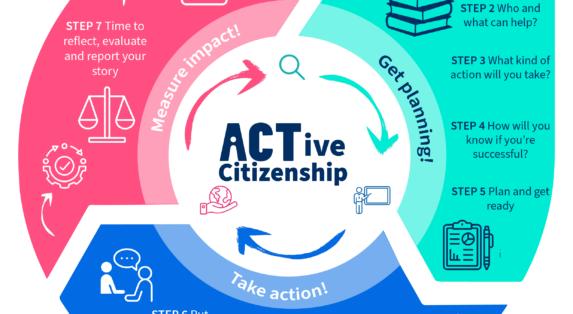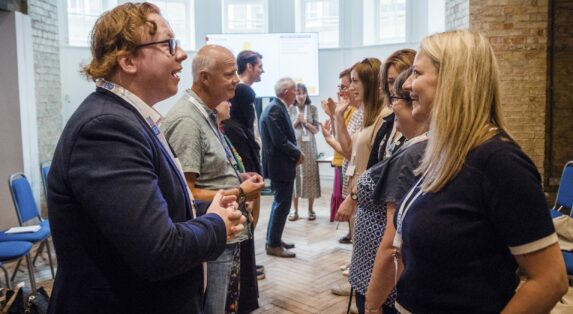
Active Citizenship
Enabling young people to take part in democracy through active citizenship
What is Active Citizenship?
Democratic societies are more likely to thrive when there is an active and engaged citizenry who contribute positively to political and public life as voters, community members and informed, active citizens.
Active citizenship is a pedagogical approach to give pupils a practical experience of democratic action and community involvement. It involves pupils in learning how to take part with others in activities designed to make a positive difference to the world around them. This might involve taking action on a local issue like homelessness or a global issue such as climate change.
Active citizenship involves pupils in:
- Research of an issue they are concerned about or interested in
- Planning and undertaking a course of action designed to address the issue and make a positive different, often involving collaboration with others and working as a team
- Reflecting, evaluating and sharing the impact to highlight the issue to others.
Active citizenship is also a requirement of the Citizenship National Curriculum and GCSE Citizenship Studies.
- Learn more about active citizenship and volunteering in our curriculum briefing
- Read more about how teachers approach active citizenship in Issue 49 of the ACT journal
- Download our KS2 ACTive Citizenship toolkit for teachers and pupils
- Download our KS3 ACTive Citizenship toolkit for teachers and students
- Download our KS4 ACTive Citizenship toolkit for teachers and students
- Try our scheme of work with fully resourced model curriculum lessons How can I be a change maker in my local community? (for school members)




